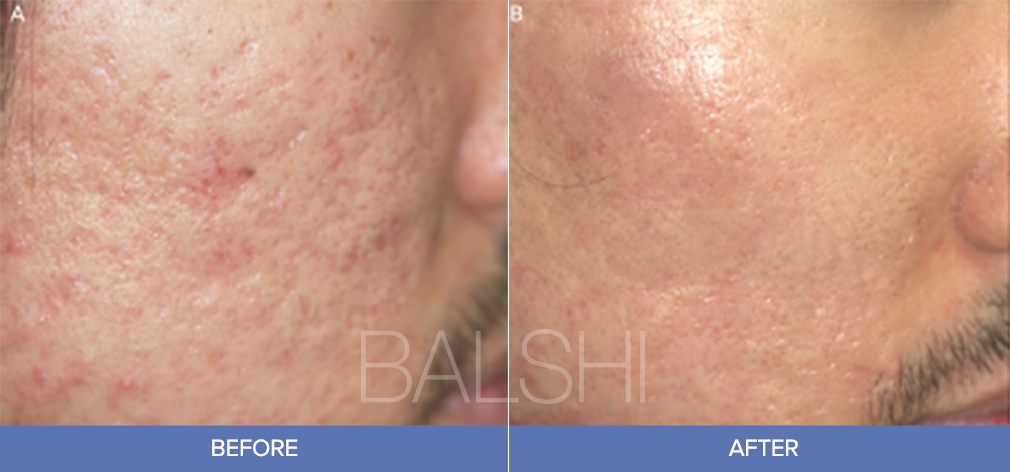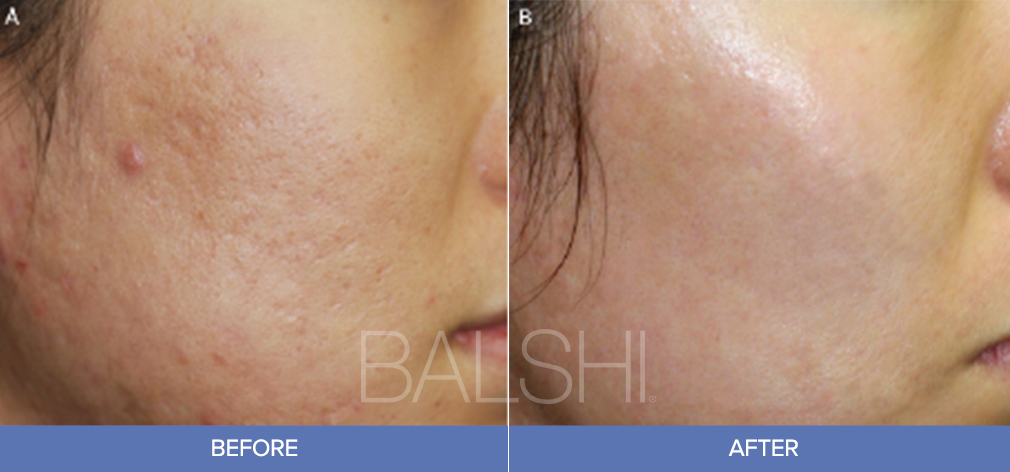Rosacea or “adult acne” is a chronic, progressive condition of the central face involving the cheeks, nose, chin and forehead. Over 13 million Americans suffer from the condition. If left untreated, Rosacea tends to worsen over time.
Rosacea or “adult acne” is a chronic, progressive condition of the central face involving the cheeks, nose, chin and forehead. Over 13 million Americans suffer from the condition. If left untreated, Rosacea tends to worsen over time.
For those who have been diagnosed with Rosacea, there is treatment available. Lasers today are capable of treating dilated blood vessels, persistent redness, and thickening skin on the nose and cheeks (also known as rhinophyma). The pulsed dye laser (PDL) has been used for years to treat the flushing and visible blood vessels of rosacea. After just one treatment, most patients will find significant improvement. With two treatments, redness can be decreased by 50%. Patients also reported reductions in flushing, itching, dry skin, burning, swelling and sensitivity. Patients state that they have significantly improved their quality of life after completing rosacea laser treatments.


